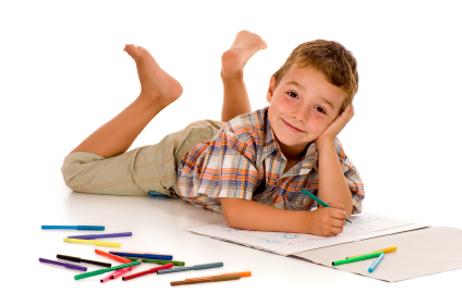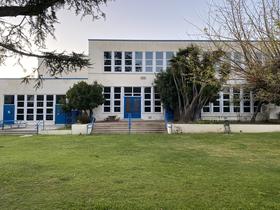Editor's note: I asked Melissa P. Earls, Head of School of Academy Hill School in Springfield, Massachusetts several questions about teaching gifted children. She very kindly offered the following answers. (I will disclaim that my youngest grandson attends Academy Hill School.) - Rob Kennedy
1. Why should parents consider sending their child to a school for gifted children?
Not every school is right for every child. And, even if a child is academically advanced, or gifted in any number of ways, a school that offers an enhanced, enriched curriculum with high expectations and increased rigor might not be the right fit. I would never push any school on any student. But, for our learners, and other students like them, Academy Hill is a terrific fit. We offer several programs that set us apart.
When looking for a school for a gifted child, it is critical that parents seek out an environment that will continuously engage the child in creative, student-driven tasks. It is important that the school allow core curriculum time and opportunities for students to pursue areas of interest in depth. It is imperative that the pace of instruction matches the student's ability to comprehend content, apply knowledge and acquire skills at faster speeds and with high proficiency. Because these children are usually eager learners, formative assessments, while necessary in any educational setting, may not be as frequent and certainly do not look the same as they would in other environments. For example, monthly, quarterly, or even annual standardized assessments are not necessary, and would only detract from these students' ability and desire to progress.
In addition, these bright, inquisitive students benefit both academically and socially when they are placed in learning environments with peers who think like they do, have the same interests, and want to be in school to learn and explore. These students motivate each other and learn from each other, and in a school like Academy Hill, that's considered "cool."
2. Is the curriculum used in a school for gifted children different from other schools, both private and public?
I've spent the vast majority of an 18-year career in public education. I've been the curriculum leader in several districts. There are distinct differences. While the curriculum might be advanced at Academy Hill School - the scope is wider and the sequence progresses more quickly - the real difference lies with the unique instructional methodology and system of assessment.
Much of what we do is thematic or based on broad units. The students connect the knowledge and recognize authentic relationships between the various content areas, and how it all links to the real world. We require the students to apply knowledge and skills. Assessments provide students with various opportunities to demonstrate what they know and understand in ways that make sense to them, and in manners that require them to think like scientists or political leaders or mathematicians or writers or explorers or artists and so on.
Here is a look at learning at the Logan School in Denver, Colorado.
Our core curriculum includes required research and presentation projects, several times a year, for students as young as kindergarten. The presentations become part of the "Good Morning Show" in the lower school, as they are shared with the school community shortly before we all get to know a "country of the day" together. In the upper school, they are part of "Forum," a program that requires students to present on topics that fall under a wide umbrella as they meet increasingly higher expectations for research and presentation. Students study a world language beginning in kindergarten, as well. We introduce the Classics in grade 4, in preparation for Latin language study in grade 6. All students experience Enrichment Clusters, which allow the children to really get creative as they dig deep into a topic for three days, and develop an authentic product or experience as a result. All this is part of the core curriculum. It isn't enrichment because the curriculum is already enriched.
3. Are the teaching methods different from other kinds of schools? Do teachers of gifted students need special training?
The methods are different, and we do experience professional development, but we are not all trained in gifted and talented education in a formal way. Our setting and our students allow us to be and require us to be extremely creative. Our lessons have to be dynamic - in the sense that they are flexible and stretchable as we encounter natural tangents and frequent inquiries based on the higher-order thinking and reasoning skills exhibited by our students. While we have authored a local curriculum guide that exceeds the state and national standards, we are not beholden to it in a strict sense. It is more critical that we teach students to think. Our students should be able to identify their own questions, conduct their own research, synthesize information, draw conclusions, defend opinions, and present and discuss findings. We teach so that they can understand and apply knowledge.
4. How do gifted students differ from other students? Can you define and describe a gifted child for us?
That's the toughest question I get asked. And there is no one answer. Giftedness looks different in every case. I prefer to discuss the engaged, bright, curious child. We look for motivated students with a high aptitude and a great attitude for learning. Admission to AHS is competitive, but it is a comprehensive application process that includes a tour and personal meeting, at least one day-long visit, tests to determine grade level placement, and finally, an assessment that provides us with insight as to whether or not the student would be able to maintain the pace of learning established in our school.
Here is a look inside a class at Academy Hill School in Springfield, Massachusetts.
The school and the child have to be the right fit for one another. Many of our students were bored or felt held back in other settings. Many read at an early age. Others appear to have strong mathematical reasoning skills. Some are musically or artistically gifted. But all of them have demonstrated a strong desire to be in school and to learn. All of them are excited by the world around them.
5. Some parents assume that their gifted child will be just fine in a regular classroom. Can you explain why this is not necessarily true?
This may not necessarily true for many of the reasons I've alluded to already. Gifted students may get bored if they are not challenged. They may feel held back by the pace of instruction, the focus on standards and testing, or peers who are not as excited or energized by learning as they are. It is difficult for one teacher in a traditional setting to truly meet the needs of all learners every day when he or she faces 22 unique students, imminent and mandatory state or national testing, and local requirements for administrative observations and evaluations. Gifted students may need a different environment for them to succeed at the levels we know they should.
Questions? Contact us on Facebook. @privateschoolreview























